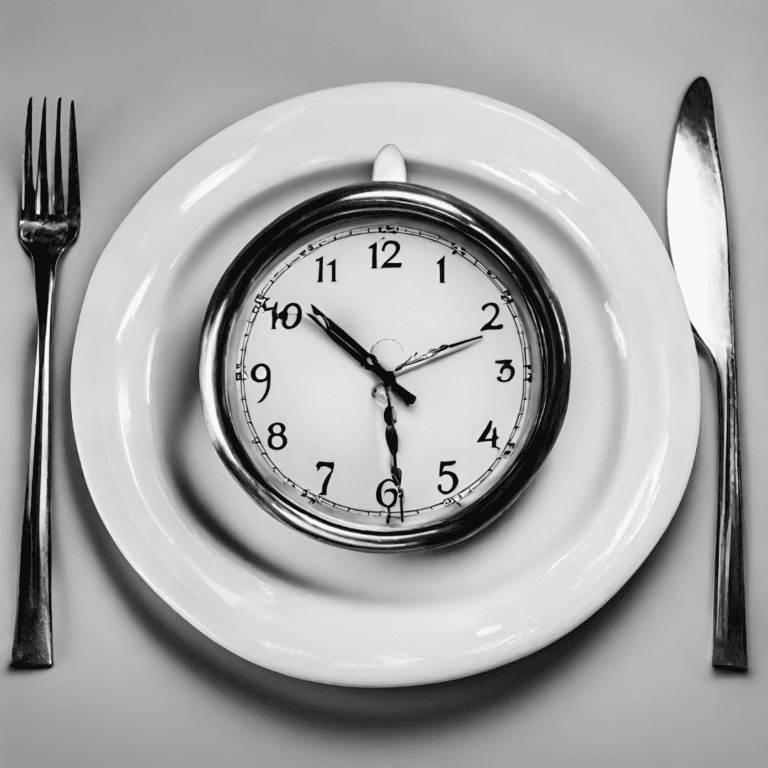
If you want to lose weight the quick and easy way while feeling the best you can and giving your body what it needs to function properly and thrive…
Counting calories isn’t the way.
The problem is people think that it doesn’t matter what you eat, it only matters how many calories a food has.
What you eat matters. But the number of calories is not a good indicator of a good diet.
It doesn’t matter how small the portion size is if the food isn’t feeding your body what it needs.
If you are not losing weight despite tracking everything you eat and feel like you’re basically starving–stop counting calories and start counting ingredients. You’ll lose weight fast.
What is a Calorie
Let’s start by defining what a calorie is. A calorie is a unit of energy. Calories are man-made in a lab. They are not something that was discovered like a vitamin or mineral. The caloric value a food has is determined by how much heat is released when the food is burned.
500 calories of a candy bar and 500 calories of a fruit will not yield the same results in your body. One gives you nutrients your body needs to survive, and the other provides no nutritional value. They result in completely different processes in the body.
If we can understand that one of these leaves us feeling energized while the other leaves us feeling miserable, why do we treat all calories the same as long as we are in a deficit?
Our bodies need to be given the proper fuel if we want to run efficiently. You don’t give diesel to a car that requires regular fuel. It doesn’t work.
Similar to my vehicle not running on diesel–our bodies don’t run on calories. Our bodies are looking for vitamins and minerals from our food to run properly.
Yes, we need energy. But calories aren’t the type of energy our bodies are looking for. Nutrition is. Calories do not equal nutrition.
Do you ever wonder how you can stuff your face with a big meal that’s heavily processed and feel so full and miserable after–but then somehow you’re hungry less than a couple hours later?
This is because your body did not get the nutrition it needed from the food you gave it. So your body is sending out hunger signals to try to get the nutrition it needs.
Here is a study that found eating processed foods leads to eating more and gaining weight. This further explains that eating processed foods might leave your taste buds satisfied, but not your body. It is still looking for nutrition.
https://www.ncbi.nlm.nih.gov/pmc/articles/PMC7946062
All Calories are Not Created Equal
Having a caloric value also doesn’t make something food. There are calories in gasoline, but it’s only meant to be “fed” to vehicles.
But if all that matters is that you are in a calorie deficit—by that logic we should be able to consume this gasoline and lose weight.
Dr. Peter Attia demonstrates this point so well in his post titled Do Calories Matter.
Of course you aren’t going to eat gasoline. The reason you aren’t going eat it is because you understand that there are more other consequences going on than the energy (calories) gasoline can give you.
If you understand this point, you can also understand the same rule applies to food that we consider edible.
And it’s not that far off from eating these heavily processed packaged foods. If all you are doing is looking at the nutrition label for the number of calories, you could be missing the ingredient list that contains many harmful chemicals.
For example, seed oils like canola oil used to be found only in an engine shop. And now they are in most packaged food. Even the foods that are “healthier” in packages.
These oils start out black like tar before they are heated up and chemicals are added (like bleach) to make it a more appealing color. And then we cook with it, add it to all of our packaged foods, then wonder why we are unhealthy.
Check out this instagram post from @TomandLaurenHealth detailing the dangers of seed oils: here.
Keep in mind this is just one example of the many ingredients that show up on packaged foods we need to be concerned about.
I was watching a video of some gym guys kind of poking fun at the people blowing the whistle on seed oils. Their point was that it’s such a small percentage of your diet that it doesn’t matter.
But my question is, how much poison is okay with you? If you wouldn’t eat it straight from the engine room, why would you eat it when it’s hidden in your packaged food? We’ve been conditioned to believe poison is okay if it’s not that much and it’s hidden.
Even if you were okay with this logic, we’re also not really consuming just a small percentage. It is often a top ingredient on a nutrition label, meaning it’s actually a large percentage of what went into making the food.
Look at this nutrition label from a bag of Doritos. The second ingredient is vegetable oil (aka seed oil).
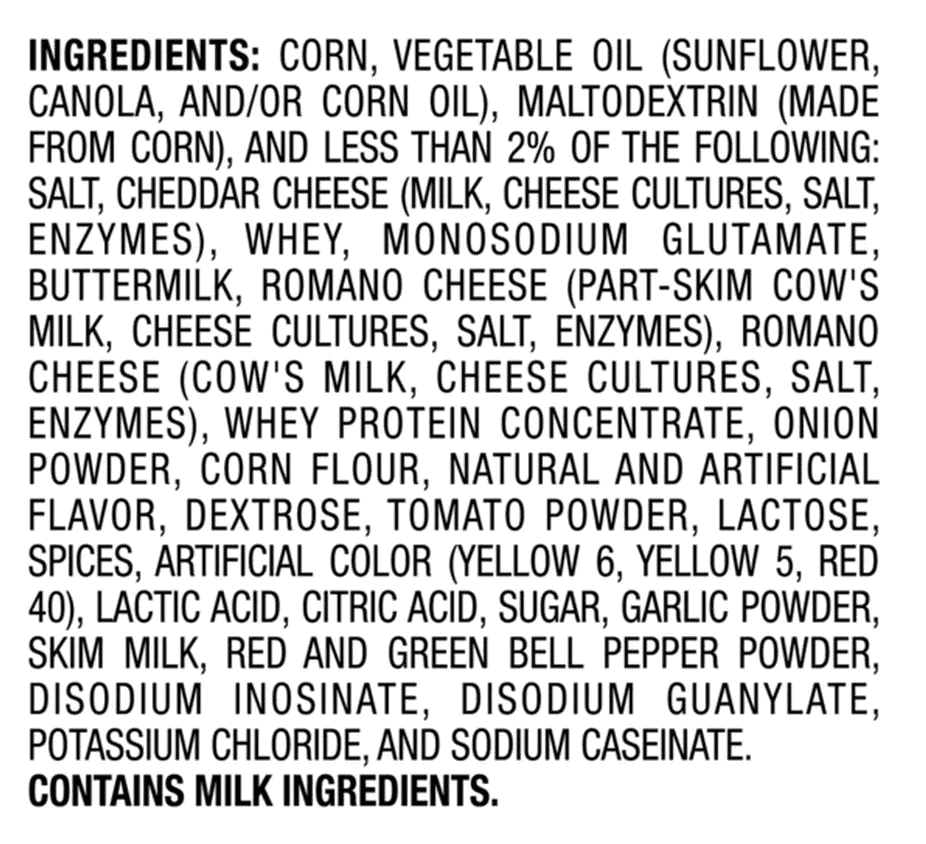
If I could recommend one ingredient to cut out it would be seed oils. Stick with grass fed butter, ghee, extra virgin olive oil (EVOO), coconut oil, tallow, or avocado oil.
Starvation Mode
But don’t all the studies say that counting calories is how you lose weight? Actually, they don’t.
Gin Stephens points out in her book Delay, Don’t Deny: Living an Intermittent Fasting Lifestyle a study that was done on the contestants from the show The Biggest Loser.
The contestants on this show were so inspiring with their weight loss results each week using the calories in/calories out method. They ate less and worked out a lot. But as Gin points out, there has never been a reunion show where everyone has maintained their weight loss.
The study found that their metabolisms had slowed down substantially–to the point that they would have to eat 500 fewer calories just to maintain their weight. You can read the study here.
This is because calories in and calories out are not independent of each other. Decreasing your calorie intake causes a decrease in calories out. If you eat 20% fewer calories, your body will naturally decrease the amount of calories burned to be 20%. And the first law of thermodynamics is demonstrated.
[Note: The law of thermodynamics is not broken in this discussion, which is often a concern I hear. The law of thermodynamics states that energy can neither be created or destroyed in an isolated system.
The problem with using this law as it relates to energy from calories is that the body is not an isolated system. Energy is constantly leaving and entering. The thermogenic effect of food is not the only factor.]
So let’s say your current metabolic rate is 2000 calories–meaning this is what your body is currently burning everyday. A calorie restrictor might say you need to eat 80% of those calories for weight loss, so 1600 is your target.
The thought process is that you will continue to burn 2000 calories when you decrease your intake to 1600, resulting in weight loss. But this is not the case. Your body will adjust how much is burned as a direct result of the intake. So your body will at best burn the 1600 calories you gave it.
Studies show that your body may burn even less as it knows you are giving it less and it’s preparing for starvation. This might sound frustrating, but it’s actually a great thing. Your body is trying to save you.
Eventually you will get to the point that you can’t keep up. This is not sustainable or healthy. It is taxing on your hormones and slows down processes in your body.
I first read about the Minnesota Starvation Experiment in Dr. Jason Fung’s book The Obesity Code: Unlocking the Secrets of Weight Loss.
He details that the study found a 30-40 percent reduction in any body processes that required energy. Body heat dropped, cognition levels declined, movement was reduced and left the participants feeling weak, they experienced hair loss and brittle nails.
All of this as the result of eating fewer calories. This is what starving is.
You might think, “Okay, so don’t cut your calories by that much and you’ll be fine.”
The point I’m making about the study is that it proves eating less calories reduces your metabolism as well as other processes in your body that require energy. So you’re not running at an optimal level.
This happens on a smaller scale as well, as evidenced by the biggest loser contestants.
When you don’t feed yourself proper nutrition, your body anticipates that there is a lack of food. It starts to burn less energy (calories) and stores what it doesn’t use as fat to use when food stops coming.
This is where the whole “starvation mode” idea comes from. Your body is trying to save you from starving when you feed it less calories. It’s trying to keep you alive longer so that you have more time to try to find food.
To contrast how your body runs with less calories vs how it runs while fasting–which some wrongly believe is just a starvation diet, read my post about the magic of fasting.
Fasting allows your body to use your fat as fuel instead of using your daily caloric intake as fuel. You feel amazing and lose weight instead of feeling starved by counting calories.
Once your body is adapted to using fat as fuel, you go from feeling crappy to feeling amazing. You won’t starve when you have all of this unused “fuel” saved up that your body needs to get rid of–your fat.
But if you keep eating 4-6 meals a day while calorie restricting, you never give your body a chance to use your existing fat. This makes it so much more difficult to lose weight.
Fewer Calories for Longevity
While this post is focused on weight loss, let’s address the argument that even if calorie restriction isn’t helpful for weight loss–it’s still healthy and good for longevity.
A study showed promising results on calorie reduction for longevity in monkeys. This means the monkeys who ate less calories lived longer. But let’s look at why they lived longer.
What did they eat? All of the monkeys were fed this man-made “chow” of nothing they would naturally eat in the wild.
The monkeys that lived longer ate the same food, just less of it.
This makes sense that monkeys who ate less of the toxic, processed food lived longer.
There was another study done on monkeys where their diet was not the man-made chow, but things they would naturally eat in the wild. And guess what they found?
There was no difference in the lifespan of the monkeys who were calorie restricted when they were eating natural foods.
This further demonstrates the importance of nutritious food over the calories you consume.
Take a look at both studies below:
https://www.ncbi.nlm.nih.gov/pmc/articles/PMC2812811
https://www.ncbi.nlm.nih.gov/pmc/articles/PMC3832985
I also recommend checking out this video from Thomas DeLauer where Dr. Peter Attia and Paul Saladino discuss these two studies.
My Experience with Calorie Counting
My experience with calorie counting has been… not great. I never ate many calories to begin with, so eating less just didn’t make sense.
The advice I was given from a personal trainer was to eat 6 small meals a day. I have never been a fan of eating in the morning, but I tried it. I felt awful.
Constantly eating felt like a chore. I never felt like I was able to eat until I was full because I was sticking to these smaller portions. So I was always hungry.
The other problem is that I was already eating under my allotted calorie amount before changing my diet, but I wasn’t losing weight.
The real problem was that I lacked nutrition. I wasn’t feeding my body what it needed to function properly. I was eating processed cheese and crackers, chips and dip–lots of processed foods.
The other problem is that because I was eating so frequently throughout the day, my body was only running on the food I ate that day rather than tapping into my fat stores.
I kept getting so hungry because I wasn’t eating enough at a time. My body would get through the glucose from the food I consumed and then send me hunger signals that it needed more when I got through them.
My body was never able to use the fat already on my body as a fuel source because it kept having to process the food I was eating every 2-3 hours.
I was ruining my chances of fat loss. And on top of that, I felt like crap.
What Happens When you Eat Excess Calories
Dave Asprey ate 4500 calories a day for 2 years with no exercise, yet he has abs. That’s a lot of calories!
He eats real food and he fasts. Which shows how much ingredients matter.
Check out his post detailing it here: https://daveasprey.com/photo-abs-after-2-years-of-4500-calories-no-exercise/
Dave also had a brilliant explanation about what’s wrong with counting calories and how it failed him in his discussion with Mark Bell. When he was 300 pounds, he would work out for 1.5 hours a day while eating in a calorie deficit–but he still wasn’t losing weight.
Melanie Avalon shared a picture on instagram of her daily food intake. She eats 4lbs of meat/seafood, 6lbs of fruit, 10 cucumbers, and a glass of wine DAILY.
I’m pretty sure that she should be crazy overweight according to the calorie counters. Also, she doesn’t work out. And she has been trying to gain weight for a while, and she can’t. She’s very lean.
Check out her instagram here.
User Error or Nutrition Error
I often hear pro-calorie counters shaming those who aren’t losing weight when they count calories saying that they must not be counting correctly. They claim it has to be “user error.”
I think Dave Asprey’s testament about not being able to lose weight despite his crazy work out routine and being in a calorie deficit is a great rebuttal to this.
But that’s pretty insulting to say about someone trying so hard to lose weight. Perhaps it’s the method that’s flawed, not the user.
Also, it’s not natural to have to weigh, measure, and track our food intake. If we just focus on eating real food, this is unnecessary.
Before the 70’s no one was overweight. And they weren’t measuring their food. It’s because they were eating real food. Packaged food wasn’t made with crap ingredients like they are today.
@CarnivoreAurelius on instagram often shares posts detailing how different our food intake was then vs now. Check out this great one here.
MACROS
Macros is short for macronutrients. They make up the nutrients we need in larger quantities for energy: protein, fat, and carbs.
The macro counters will tell you that if you aren’t losing weight you just need to adjust your macros. And you can absolutely do this with success.
But macros are nutrition. The people who track macros are trying to analyze how much of their food intake comes from protein vs carbs vs fat. And they use calories to track the percentages of these.
There are plenty of studies out there to suggest prioritizing protein is a great idea for weight loss and health in general. Some studies say high fat/low carb, while other studies say high carb/low fat gives similar results. So you can go either way based on what works for your body.
If you are the type of person who wants to track something, you could go this route. I don’t think it’s reasonable to have to count and track your food all day, and you don’t need to do this to be successful.
The problem I have with tracking macros is that you could stay within your macro goals while eating only processed food and get no actual nutrition. This will make weight loss challenging and definitely slow you down.
If you focus on 1 ingredient foods, you don’t have to track anything. Your body will crave what it needs whether it’s protein, carbs, or fat.
But if you want to do this, you absolutely can. However, you still need to pay attention to the ingredients in your food.
My recommendation would be to track protein if you just want to track something. Make sure you are getting .8-1g of protein per pound of your ideal body weight. So if your goal weight is 130, aim for 104-130g of protein.
Then you can fill in the rest of your diet with carbs and fat as needed. Fruit, butter, etc.
I would rather not have to track. You can lose weight faster by eating real foods with 1 ingredient and no nutrition label.
Then when you get to your goal, be 80/20 with your lifestyle for some flexibility. Meaning, eat 80% of your diet with 1 ingredient foods, and the other 20% of your diet you can be more flexible.
Maybe you go out for dinner with friends one night and you don’t worry about how healthy the meal is. Or you take your kids out of ice cream. You can still enjoy different events in your life that involve food, but lose the weight first before adding this 20% into your life.
Disconnected from our Food
Another reason I don’t promote weighing and tracking food is that it has caused a disconnection. We no longer have any idea what goes into making our food. We just eat it based on numbers.
Food is not numbers. Food is made with ingredients. Make sure those ingredients are actually food before you eat it.
We were never meant to be tracking calories, checking food labels, or having to measure the amount of nutrients in our food.
Do you know what ingredients are in all the food you are eating?
Do you know what it took to prepare it?
Was it made in a factory for the cheapest possible price and packaged in plastic?
Or was it handled with care in the kitchen after being harvested in a field?
The meat you’re eating–were the animals living on a pasture eating natural foods, or were they raised in a stressful environment packed in a cage and fed an unnatural diet?
All of this matters far more than the number of calories.
The Cost of a Healthy Diet
“Healthy food is too expensive.”
This is nothing more than an excuse. It may seem that way when you’re comparing organic fruit to non-organic.
But are you even buying the non-organic fruit anyway? Or are you still buying a bag of chips that probably costs more than a bag of fruit?
Dr. Paul Saladino shared two different 1600 calorie meals on his instagram. One was fast food and the other was 1 ingredient, animal based foods. Not only did you get more food with the healthy option (not less), but it was also cheaper! Win-win.
He makes a great point that the healthy option will leave you satisfied, while the processed one will leave you hungry soon after. Your body craves nutrition. Take a look at his video post on instagram here.
Also, let’s consider the cost of not eating healthy. If you are overweight or even obese, you increase your risk of several health problems. Diabetes, high blood pressures, heart disease, stroke, cancer, kidney disease, mental health problems, fertility–just to name a few.
That’s a lot of medical bills that could be avoided by making better decisions in the food aisle.
It is possible to eat healthy and stay on budget. But even if it were more expensive, I bet you’d save money in the long run.
How to Stop Counting Calories + Lose Weight
So you’re on board and you want to stop counting calories. So what do you do instead?
Make your diet 1 ingredient foods with no nutrition label. Eat mainly meat, eggs, seafood, fruits and vegetables. Only eat the foods you like–don’t force yourself to eat vegetables or seafood if you hate them.
If you’re looking for some kind of diet with specific guidelines–you can look into Whole30, Paleo, Carnivore, or Animal-based.
These diets work because they prioritize real, nutrient-dense food. 1 ingredient, no nutrition label.
These are all hard-core elimination diets. No dairy, no legumes, no grains, no gluten.
Not all foods with 1 ingredient are good for you because of the way we process them.
We have depleted our soils of minerals by spraying pesticides that kill all organisms that give us mineral rich soil. They spray for the bad bugs but they kill all the good ones we need for good soil in the process.
This is similar to the way antibiotics kill the bad bugs but also the good ones in our gut that we need, and then we destroy our gut.
We pasteurize our dairy to “clean” it and by doing so we strip out the enzymes we need to process lactose. That’s why we have people who are lactose intolerant. Raw dairy is the way to go.
We bleach our whole grains (bread, rice) and then wonder why we can’t handle eating it without a reaction in our gut.
Legumes (beans, lentils, chickpeas, peanuts) contain antinutrients and can cause inflammation in the gut. You can get around this by soaking them if you want to keep them in your diet. But eliminating them while you lose weight could be a better solution.
To be clear, I am not anti any of these foods. The goal is to heal our gut so that we can handle eating dairy, legumes, grains and gluten.
But it is important to focus on the quality of your food. Know what it is sprayed with and how it is processed so that you can make choices that better support your body.
But if you want to lose weight fast, you have to cut out all the foods that cause a negative reaction in your body. That means following an elimination diet until the weight is off or until you know how your body reacts to certain foods.
It’s also important to get your body to burn your existing fat stores for food. To do this, start fasting. You don’t have to be hard core with this. You can even still eat 3 meals a day if you want, just do it in an 8 hour timeframe.
For faster results, you can experiment with fasting and see what makes you feel best. Start with two meals and no snacking in an 8 hour eating window. I think one meal a day OMAD is the sweet spot for me.
Simplicity is Key for Weight Loss
If this sounds too difficult and restrictive, let’s look at this a different way.
You could stick with calorie counting. You have to weigh and track all your food. You have to prepare 3 meals plus snacks, which is often 6 small meals a day.
This is a lot of work! And you’re probably still feeling hungry. Which makes weight loss challenging when it doesn’t have to be.
The simple way is to just buy food with no nutrition label. Meat, eggs, fruit, vegetables. It takes the guesswork out of it. Nothing to weigh, nothing to count.
And if you’re fasting, you have less meals to prep. As a mom who feels like I’m constantly having to get food for the kids, I appreciate the break from having to do that for myself.
Whole30 and fasting is how I lost 50 lbs after having my first baby. Both were life changing for me and really opened my eyes to why most people are perpetually dieting with little results to show for it.
Whole30 focuses on whole foods and ingredients, fasting focuses on eating less frequently. Quite the opposite of what I was told to do–count calories and eat 6 meals a day.
I was so against doing a restrictive diet at first. It seemed like it would be unsustainable.
I decided 30 days was not that long of a commitment, so I finally gave Whole30 a try.
I lost 10lbs in the first 10 days (and it was the last 10lbs–so the hardest to lose).
I lived on meat, fruit, and potatoes. I ate two meals a day. This really showed me the power of ingredients.
It also taught me not to fear carbs if they were natural. And that I didn’t need to be worried about the sugar in fruit.
What’s crazy is my diet was pretty decent before I started Whole30 (or so I thought). I had already lost 40lbs prior to starting. Paying attention to food ingredients made the weight fall off.
I also effortlessly kept the weight off. I kept eating this way 80% of the time, and the other 20% I ate what I wanted. I also continued to do intermittent fasting.
If you want to lose weight faster, feel better than ever, and not have to track anything–try this out + let me know what you think if you do!
Do you not know that your bodies are temples of the Holy Spirit…Therefore honor God with your bodies.
1 Corinthians 6:19-20

17 Practical Tips for Better Sleep
You can’t sleep because you’re tired all day only to be wired all night. You can’t find the energy to workout or eat healthy (so you grab whatever is convenient). You can’t even get your daily tasks done—much less have energy toward fulfilling your goals or maintaining relationships. You lose patience with your kids. You…
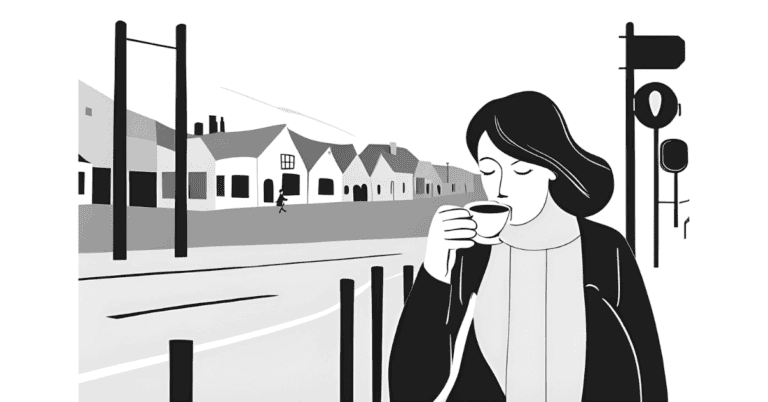
9 Effortless Weight Loss Hacks
Losing weight can seem like such a difficult thing to do, especially if you don’t know where to start. Diet and exercise are obvious changes that will help, but what about starting with some easier tasks first or even in addition to diet and exercise. Here’s a list of 9 effortless weight loss hacks to…
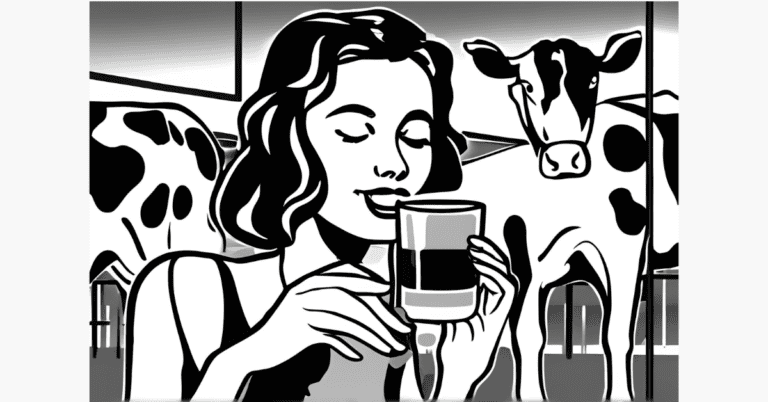
Got Raw Milk? Why Dairy Isn’t Scary in 2024
I used to believe eating dairy products was detrimental to your weight loss efforts. I did an elimination diet and lost 10 pounds in 10 days. And dairy was part of what I eliminated. This was bad news to me, because I love dairy! Milk, butter, cheese, cream, yogurt, ice cream–some of the best foods…
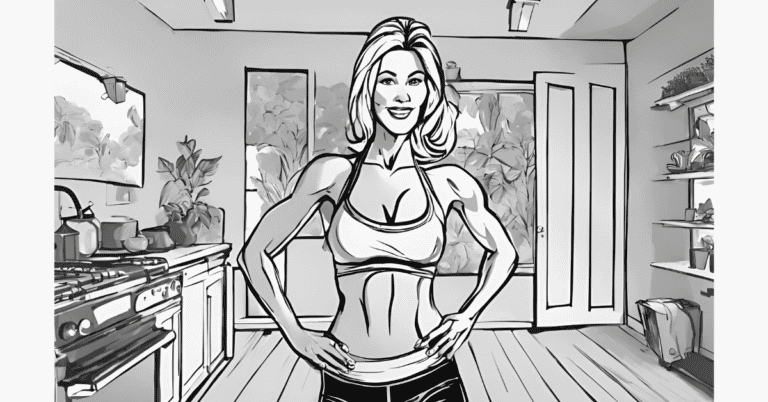
5 Ways I Avoid Rebound Weight Gain After Weight Loss
Do you ever get discouraged about losing weight? What’s the point in all that work if you’re just going to gain all the weight right back… When I lost 10 pounds in 10 days, I was worried the weight would come right back on as soon as I stopped the elimination diet I was doing….
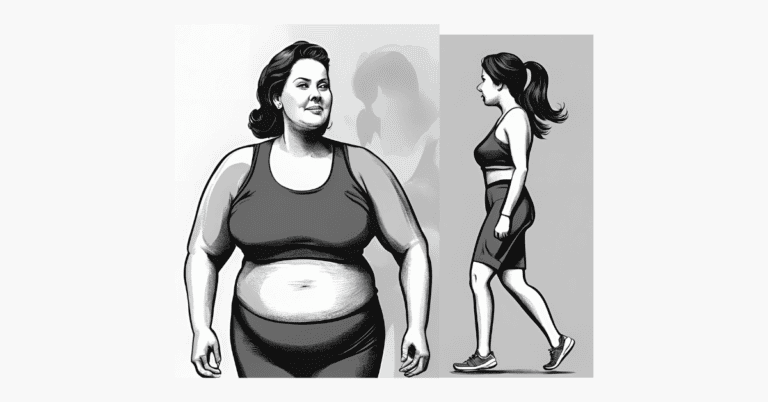
7 Ways I am Losing Weight Postpartum (After Losing 50 Pounds the First Time)
Losing 50 pounds postpartum took a lot of trial and error. But doing so equipped me with the knowledge I need to do it again after my second baby. If you want specifics on what I did the first time, check out this post: How I Lost 50 Pounds. I learned how important food quality…

10 Free Options for Expensive Biohacks
Are you overwhelmed with all the health devices out there? When I was trying to lose weight I found myself in the health and wellness world that is full of biohackers. And it was life changing. But there are so many expensive items out there, it’s hard to keep up with what you actually need…
Disclaimer: The information provided on this blog is for general informational purposes only and is not intended as a substitute for professional medical advice, diagnosis, or treatment. Always seek the advice of your physician or other qualified healthcare provider with any questions you may have regarding a medical condition or any personal health concerns. Reliance on the information presented on this blog is at your own risk. The content is not intended to provide medical guidance or recommendations, and the author is not responsible for any actions or decisions made based on the information provided. It’s important to consult with a qualified healthcare professional for individualized medical guidance.


